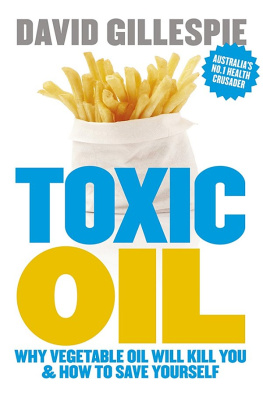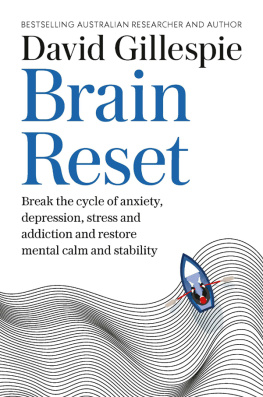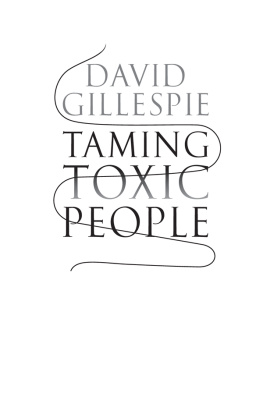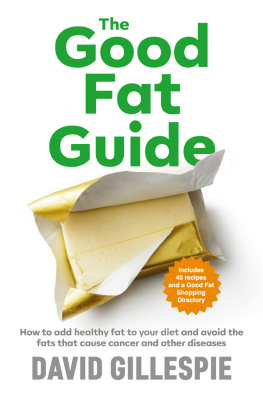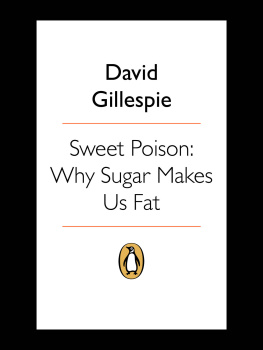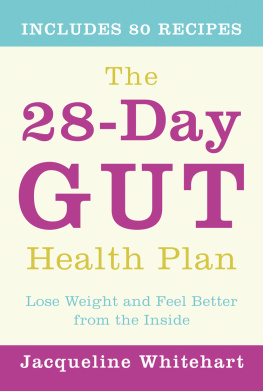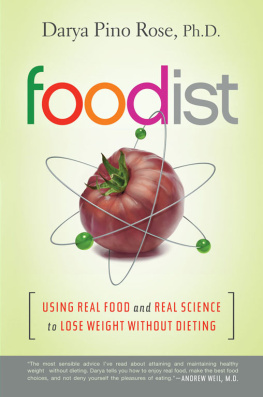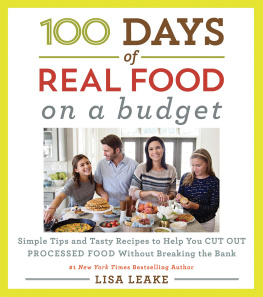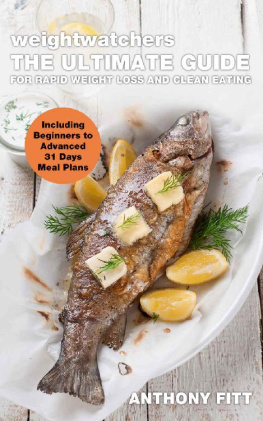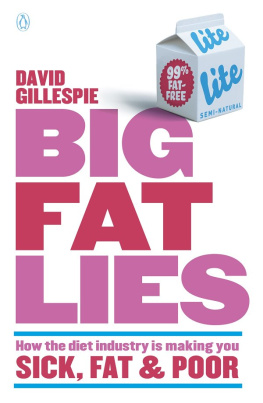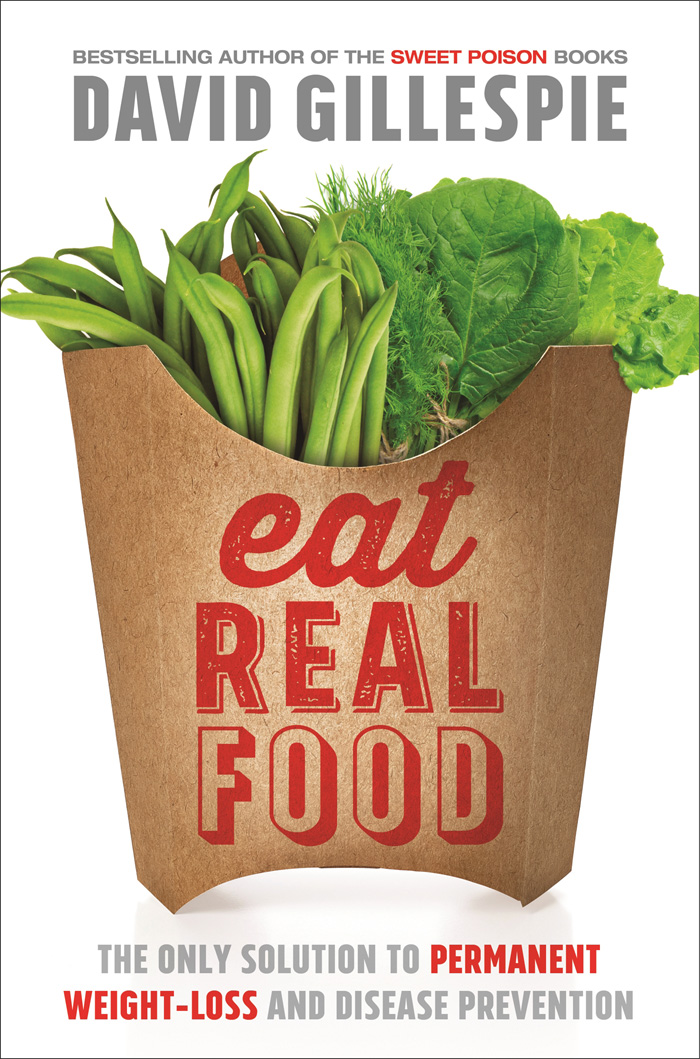About Eat Real Food
IN THE LAST 100 YEARS, weve become fatter and sicker, with millions of people developing serious diseases from diabetes to cancer. Health gurus confuse us with complex diets, expensive superfoods and conflicting advice, while food manufacturers load their products with addictive and destructive ingredients. But help is at hand. Health and consumer advocate David Gillespie shares the simple secret of weight loss and wellbeing: swap processed food for REAL FOOD.
Eat Real Food features:
an explanation of why diets dont work and provides a focus on what does
information on how to lose weight permanently, not just in the short term
evidence-based science explaining the real culprits of ill health and weight gain
advice on how to read food labels
easy recipes to replace common processed items and meal plans that show how simple it is to plan, shop and cook REAL FOOD
tips for lunchboxes, parties, and recipes for food kids actually like
Eat Real Food is the safe, effective, cheap AND ONLY solution to losing weight and improving our health permanently.
DAVID GILLESPIE

THE ONLY SOLUTION TO PERMANENT
WEIGHT LOSS AND DISEASE PREVENTION

CONTENTS
To Lizzie, Anthony, James, Gwen, Adam, Elisabeth and Fin.
INTRODUCTION
In 2003 my wife, Lizzie, decided to make my life immeasurably harder. You see, she decided to make twins instead of our fifth child. We already had four kids under the age of eight, and adding twin babies to that was going to be about as much fun as being poked in the eye with several (six, probably) sticks. Weighing in at well north of 130 kilograms (I was afraid to see what the actual number was), I wasnt coping with the four we already had. It was time to reach for the panic button.
I hadnt amassed 40 extra kilograms (at least) on my waist overnight, Id been working long and hard at it, accumulating a few extra kilograms every year of my adult life. Every now and then, Id notice my (latest) favourite pants shrinking and decide to do something about it. This usually involved doing whatever fad diet Id seen on the telly that week or joining a gym or walking the dog a lot. And these all worked. Every single time I applied willpower to the problem, my weight would drop and it would keep dropping for exactly as long as my willpower held out. In my case, that was usually about two weeks. Then Id give up from the sheer effort of sustained self-control and the weight would come charging back (usually with a bit of interest). If willpower was the key to weight loss I was clearly doomed.
What I couldnt understand was why willpower was a necessary part of the equation. Every other species on the planet appeared to control its weight exactly the same way it controlled its height, on autopilot. Even when there was an abundance of food, other animals seemed to stop eating well before the point they gained 50 per cent of their body weight. The only exceptions to this rule appeared to be humans and any animal unfortunate enough to be fed by humans.
And even with humans, obesity appeared to be a problem that had only really become a bother in the last 200 years or so. As a species, we had successfully lived on this planet for at least a quarter of a million years, but only in the last 0.08 per cent of that time had we suddenly become lard-bottoms. If that time were represented as a day, wed successfully avoided obesity for 23 hours and 57 minutes only to succumb at three minutes to midnight.
I didnt accept that wed all suddenly developed some kind of mass loss of willpower. I didnt buy it because it didnt seem to be about timing. It seemed to be about exposure to the modern Western way of life. Or, as a biochemist friend once (half-jokingly) said, the strongest correlation with obesity and disease is speaking English. As soon as a people, be they Polynesian islanders or Chinese peasants, switched from their traditional way of life to a Western one, all the badness happened everything from obesity to heart disease and every other chronic disease between. And this was a process that seemed to be happening all over the world to this very day. To buy the willpower story, Id have to assume that something about traditional life gave us wills of steel and something about Western life was willpower-sapping. That would of course be nonsense. We are the same people with the same biochemistry and the same brains. Whether we can use a toaster instead of a fire or buy food rather than hunt it could not possibly alter our psychological make-up.
I figured that if I could get to the bottom of what it was about Western society that made us so fat I was pretty sure it wasnt speaking English I might find a way to avoid being so fat myself. So I hit the books. It quickly became apparent that exercise was not part of the answer. There were just too many studies showing that people have always been as lazy as their environment allows them to be. Traditional people exercised exactly as much as was required to get their food and napped the rest of the time. Indeed, one recent study showed that the average African hunter-gatherer burned fewer calories than the average London office worker. But the key was the hunter-gatherer also ate less. It seems that, like every other animal on the planet, in our natural state we eat exactly as many calories as we require for the exercise level we take on. Exercise more and youll eat more. Exercise less and less is what youll eat. Its kind of like breathing. If you work out, you consume more oxygen, and if you dont you consume less. No one would be insane enough to suggest that our oxygen intake is related to obesity, but thats effectively what many were saying about our calorie intake.
If the sedentary nature of Western lifestyles was not the obesity factor and neither, surely, were the fashions (can flared jeans make you fat?) or the language then I reasoned it could only be the food itself. Perhaps theres something about Western food that interferes with our ability to recognise calories properly or use them efficiently.
It didnt take me long to find a significant volume of research suggesting that this something was sugar. Until the early 1800s, the white gold had been a rare, expensive and highly prized possession of the more well to do. Having rotten teeth was even once considered a status symbol because it meant you could obviously afford sugar. This caused wannabes to invest heavily in coal dust and tar (for smearing on the teeth, of course).
From the nineteenth century onwards, sugar became steadily cheaper and steadily added to more and more foods. It travelled with Western civilisation like a plague-infested rat, and was often the very first food adopted by traditional inhabitants of any land it touched. We like sugar. We like it a lot. And we like any food that contains it more than any food that doesnt. This little economic truth wasnt lost on the people who desired to make money out of selling us food. All manner of new sugar-delivery vehicles were invented to tempt us soft drinks were born in the dying days of the nineteenth century, chocolate bars at the start of the twentieth, and juices and sugar-filled breakfast cereals by the end of the 1940s.
But the science was abundantly clear by the mid-1950s. Sugar makes us fat. And not just us; any animal fed sugar will become obese, chronically ill and eventually die a horrible and gruesome death. Sugar isnt a poison in the sense that you drop dead on the spot, but its a slow-acting poison that takes out your internal organs one by one oh, and it makes you fat too. It seemed that the difference between animals that controlled their weight automatically and those that couldnt was the absence or presence of sugar.


